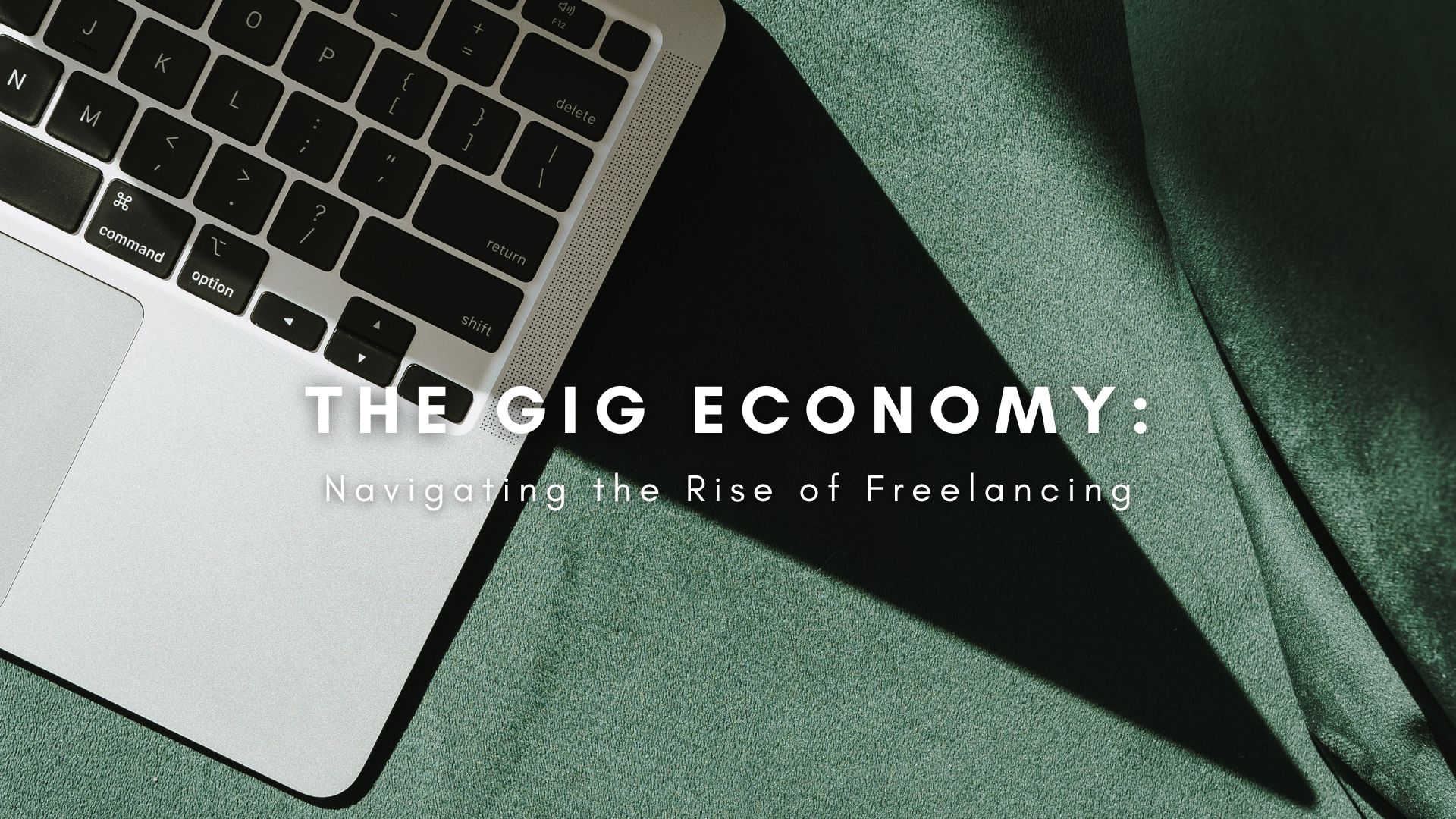
The Gig Economy: Navigating the Rise of Freelancing
Welcome to the era of the gig economy, where freelancing and gig work are becoming increasingly prevalent. In this blog post, we’ll explore the growing trend of freelancing and gig work, discussing its impact on traditional employment models and sharing strategies for businesses and individuals to thrive in this dynamic landscape.
Understanding the Gig Economy

The gig economy refers to a labor market characterized by short-term contracts, freelance work, and independent contractors. Enabled by technology platforms like Uber, Airbnb, and Upwork, the gig economy offers flexibility, autonomy, and opportunities for individuals to work on their own terms.
Impact on Traditional Employment Models

The rise of the gig economy has disrupted traditional employment models in several ways:
Flexibility vs. Stability: Freelancers enjoy greater flexibility and autonomy in their work schedules but may lack the stability and benefits associated with traditional employment.
Skills and Talent Acquisition: Businesses can tap into a global pool of talent and expertise by hiring freelancers for specific projects or tasks, rather than maintaining a full-time workforce.
Economic Shifts: The gig economy has implications for income inequality, job security, and labor rights, sparking debates about worker protections and social safety nets.
Strategies for Thriving in the Gig Economy

Whether you’re a business looking to leverage gig workers or an individual considering freelancing, here are some strategies for thriving in the gig economy:
Embrace Flexibility: Adapt to the changing nature of work by embracing flexibility in your approach to employment and business operations. Explore alternative work arrangements, such as remote work, project-based contracts, and freelance partnerships.
Build a Strong Personal Brand: Differentiate yourself in the competitive gig economy by building a strong personal brand that highlights your skills, expertise, and unique value proposition. Leverage online platforms like LinkedIn, Upwork, and Fiverr to showcase your portfolio and attract clients.
Cultivate Relationships: Cultivate long-term relationships with clients and freelancers based on trust, reliability, and mutual respect. Invest in communication, collaboration, and transparency to foster strong partnerships that yield positive outcomes for all parties involved.
Invest in Continuous Learning: Stay ahead of the curve by investing in continuous learning and skill development. Keep up with industry trends, emerging technologies, and market demands to remain competitive and relevant in the gig economy.
Prioritize Work-Life Balance: Maintain a healthy work-life balance by setting boundaries, managing your time effectively, and prioritizing self-care. Avoid burnout by taking regular breaks, setting realistic expectations, and seeking support when needed.
Riding the Gig Wave
 The gig economy offers both opportunities and challenges for businesses and individuals alike. By understanding the dynamics of the gig economy, embracing flexibility, building strong relationships, investing in continuous learning, and prioritizing work-life balance, you can thrive in this evolving landscape. Let’s navigate the gig economy together and embrace the opportunities it presents for innovation, growth, and success.
The gig economy offers both opportunities and challenges for businesses and individuals alike. By understanding the dynamics of the gig economy, embracing flexibility, building strong relationships, investing in continuous learning, and prioritizing work-life balance, you can thrive in this evolving landscape. Let’s navigate the gig economy together and embrace the opportunities it presents for innovation, growth, and success.